#ttrpg community
Text




Hey everyone I felt cute with my elf ears on. It's game night and I'm making a new character for a TTRPG called Pathfinder. I've yet to play this one but it sounds more realistic as far as the gameplay goes.

I'm making a Cute little halfling 2'10" Chaotic Neutral Cleric named Zandra Wildstar. Her Deity is Gorum the god of chaos so that sounds fun. She's tiny and feisty but courageous and brave.
#me#malina#trans#transgender#lgbtq#transfem#lgbtqia#transgirl#trans woman#selfie#game night#pathfinder#ttrpg#ttrpg character#ttrpg community#elf girl#elf ears#fantasy
29 notes
·
View notes
Text
Review: So You Want To Be A Game Master by Justin Alexander

I was reading Justin Alexander’s book So You Want To Be a Game Master this week and something very obvious sneaked up on me. When someone says a book is for “new GMs”, they’re going to have to imagine some kind of person when they say that. When you say “new GMs”, what do you imagine to be their past experiences, their wants, their needs?
Now this book has an answer to that question. But it’s answer that is inherited, rather than made. Because the book is essentially a kind of transmutation of the Alexandrian blog, from pixel to print, the intended reader of the book has to be pretty close to the blog’s primary readership. Which turns out to be primarily, people running D&D 5e, secondarily, people running similar trad games, and tertiaririrally, anyone else.
But the model of the GM that D&D 5e and similar-ish trad games propose is a specific one. You know the model but it’s worth expanding: world-creator, NPC-actor, story-starter, story-ender, rules-teacher, player-manager, pseudo-computer, and so on, and so on. I’m not a fan of this model. For one thing, I think it is too much. I don’t think anyone dreams of doing this much labour.
Ever since the hobby began, people have been trying to solve it. The two broad solutions have been: adventure modules and highly specific games. Adventure modules say, “We got you, boss. Here’s a bunch of work done already. Focus on the other stuff.” Highly specific games say, “We’re world, scenario, rules, everything, all wound up and ready to go. Just follow instructions. Add salt to taste.”
Even as the Alexandrian has a lot of content about “fixing” D&D modules like Descent into Avernus, neither of these two solutions are to be found in So You Want To Be A Game Master. Instead, the book primarily gives you two things: techniques and procedures for running specific modes of play (dungeons have a dungeon turn, raids have raid turns, mysteries have the node structure and the three clue rule) and advice on how to write and create your own play materials (creating dungeons, hexcrawls, and so on). I have no doubt a need is being met here. But focusing on these things presupposes that our conceptual new GM won’t be using the previously mentioned two solutions – modules or specific games. Why?
Maybe it’s because this imagined new GM really wants to write their own adventure material. Fair enough. I’m one of those people. Or I was, when I played 5e a lot. (Nowadays, I’ll do anything to avoid doing anything.) But this isn’t a book about writing per se – as in, it’s not about the act of imagination where your mind goes away and comes back with words. It’s mostly about how to structure the results of that creative act. It’s mostly giving you formats to follow.
So I think we come to the answer finally: This book imagines a new GM is someone who is running D&D 5e or some other un-opinionated game and wants structures to follow when they write their own adventures. There is other good stuff in there for other people but it’s limited: this is who will get the most out of this book.
(This first appeared on the Indie RPG Newsletter)
23 notes
·
View notes
Text







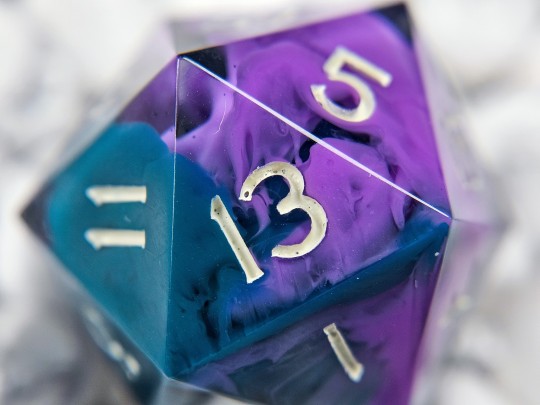
“Sick Starter Jacket, Bro!”
90’s Dream Jacket
When I was 6, there was one thing I wanted more than anything - an Anaheim Mighty Ducks Starter jacket. I asked for it every birthday and holiday from 6 to 10 before giving up all hope I’d ever don the turquoise and purple.
While I never got my dream pullover, you can take a piece of my childhood and play ttrpgs with it.
#90s#90s aesthetic#90s vibes#dnd dice#dice#dice maker#dungeons and dragons#handmade#ttrpg#d20#dice goblin#dnd#rpg dice#mighty ducks#ttrpg community#table top games#tabletop gaming#resin dice#resin artist#resin art#rpg#dice aesthetic#artist#artists on tumblr#art#dungeons and dragons dice#polyhedral dice#purple#texture#math rocks
20 notes
·
View notes
Text
being a GM is really fun because sometimes you can make your players go through some really traumatic Evangelion bullshit, but other times you can force them to go bowling for no reason
16K notes
·
View notes
Text
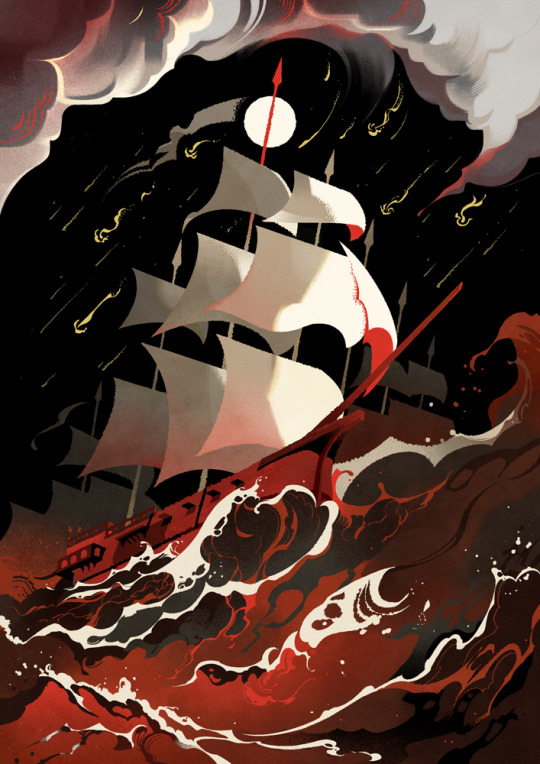
The despotic fleet, one of the main adversaries of the Dioscorian agents 🔥 The Hidden Isle
#illustrators on tumblr#artists on tumblr#illustration#ttrpg#the hidden isle#indie rpg#ttrpg community#nautical#maritime#seafaring#sefirot tarot#Sefirot#ocean
10K notes
·
View notes
Text
I am by no means one of those people who are overly cautious about cultural sensitivity, and who does or does not have the right to write what, but boy howdy does pretty much every role-playing game seem to love presenting a weirdly-fetishized version of any non-European culture discussed. And/or basing fantasy cultures on aforementioned fetishized versions of non-European cultures.
Like, it is entirely possible to depict a people who live in harmony with nature without also being a thinly veiled noble savage trope.
8K notes
·
View notes
Text

Here's a Shadowheart tarot card I drew to congratulate larianstudios for their release of baldurs gate 3 today! 🖤
#baldurs gate 3#shadowheart#dungeons and dragons#dndart#larian studios#baldurs gate iii#baldurs gate fanart#fanart#fantasy art#elf art#tarot art#tarot cards#ttrpg community#ttrpg art#ttrpg#ttrpg character#dnd5e#dnd#baldur's gate 3#bg3
7K notes
·
View notes
Text
i'm sorry did you say street magic
i'm sorry did you say street magic is a game about creating a strange magical city with your friends, it runs completely gmless, and it can either be a fun game to play with friends, or a tool to create a town to play in
2K notes
·
View notes
Text
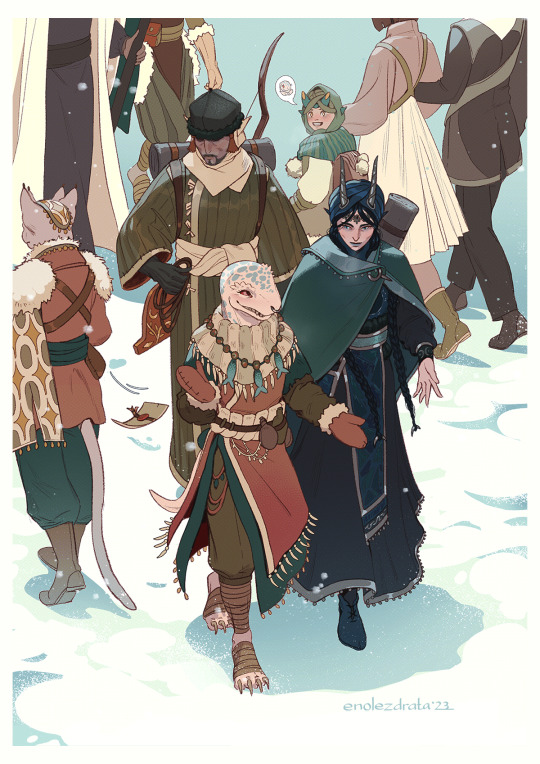
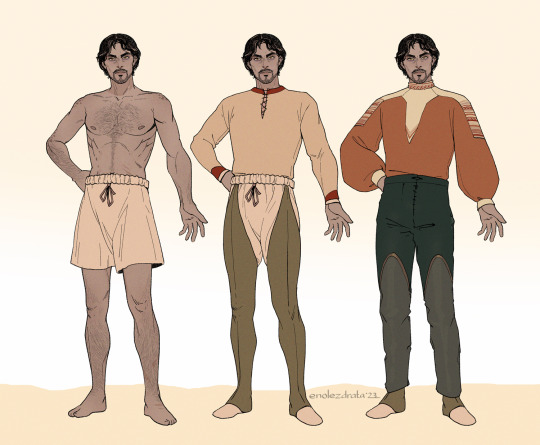


Something for our winter campaign and a reference of clothes for Reashi
#ttrpg character#ttrpg community#artists on tumblr#riebina#OC: Reashi#OC: Reesa#OC: Lond#OC: Akasa#OC: Shara#my art
1K notes
·
View notes
Text

Magnagothica: Maleghast necromancer house 6/6: GOREGRINDERS
#art#artists on tumblr#digital art#digital painting#sketch#sketchbook#illustration#painting#drawing#sci fi#magnagothica#maleghast#goregrinders#chainsaw#ttrpg#ttrpg art#indie ttrpg#ttrpg community#ttrpg character#tabletop rpg#tabletop games#tabletop roleplaying#roleplaying games#rpgs#tabletop gaming#tabletop wargaming#homebrew#character design#character art#leather
1K notes
·
View notes
Text
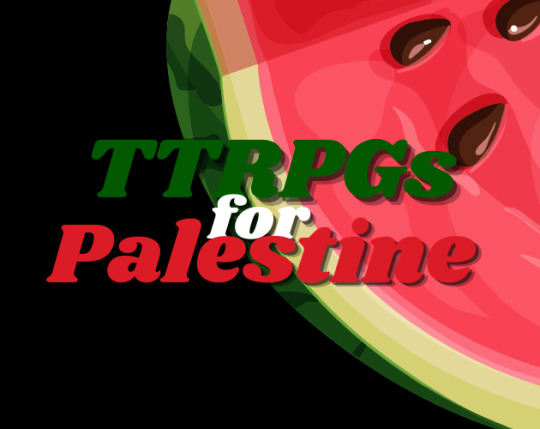
i'm not sure if anyone has posted this here already, but submissions close tonight for the TTRPGs for Palestine bundle run by @/jesthehuman. (abt 8 hours left as of now, 16:30 GMT+1 19/02.)
if you have any TTRPGs, TTRPG assets + tools, etc on itchio that you can submit, just follow this link to submit them to the charity bundle!! if you've never done it before, i assure you it's super quick and only takes a second, and you can simply select any of the games you've already published with a few clicks. (and you can make multiple submissions to offer several games!) there's more info on how the bundle will work in the FAQ at the above link.
and if you're not a dev/have nothing to submit but still want to help, keep an eye out -- the bundle is planned to come out in march!
there are over 600 entries so far; could we possibly hit 700 or more before the end of the evening? we can try!!!
967 notes
·
View notes
Text
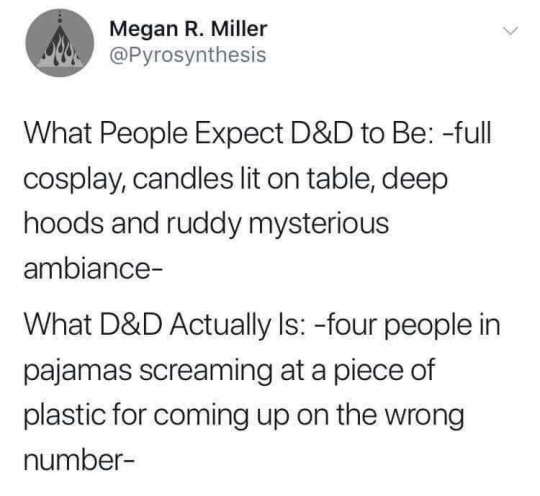
#memes#funny memes#best memes#funny#humor#meme#lol#dungeon master#dungeons and dragons#dnd#dnd 5e#dnd memes#dnd 5e memes#dungeons and dragons memes#ttrpg community#ttrpg#tabletop#ttrpg memes#ttrpg stuff#shenanigans#discord shenanigans#discover#discord chat
1K notes
·
View notes
Text
Help Save the World of TTRPGs and Their Creators.
Okay I’m being a little dramatic, but at the same time I’m pretty serious. This is a call to action, and the livelihoods of myself and lots of other people, many of them (like myself) disabled, are depending on it. This is a post about why, what you can do about it, and (perhaps least often answered) how.
This post is actually an accompaniment to another discussion by someone else. If you don’t want to listen to a 90-minute in-depth discussion of much of what I’m about to tell you, you can just keep reading. Otherwise, click here or here and listen to this either before or after you read this post. (They’re the same thing, just different sources.)
If you have ever made or reblogged posts urging people to switch from Google Chrome to Firefox, you should be willing to at least give a try to other TTRPGs besides D&D5e for much the same principle reasons. I’m not telling you you have to hate D&D5e, and I’m not telling you you have to quit D&D5e, I’m just asking you to try some other games. If you don’t like them, and you really want to go back to D&D5e, then go back to D&D5e. But how can you really know you won’t like other games if you have literally never tried them? This post is a post about why and how to try them. If you’re thinking right now that you don’t want to try them, I urge you to look below to see if any of your reasons for not wanting to try them are covered there. Because the monopoly that WotC’s D&D5e has on TTRPGs as a whole is bad for me as a game designer, and it’s bad for you as a game player. It’s even bad for you if you like D&D5e. A fuller discussion of the why and how this is the case can be found in the links above, but it isn’t fully necessary for understanding this post, it’ll just give you a better perspective on it.
If you’re a D&D5e player, I’m sure at some point or another, you’ve been told “play a different game”, and it must get frustrating without the context of why and how. This post is here to give you the why and how.
[The following paragraph has been edited because the original wording made it sound like we think all weird TTRPGs suck.]
Before that though, one more thing to get out of the way. I'm going to level with you. There’s a lot of weird games out there.
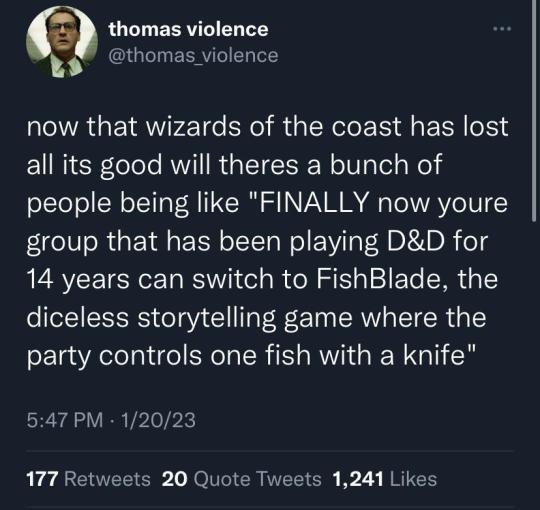
You are gonna see a lot of weird TTRPGs when you take the plunge. Many of them try to completely reinvent what a TTRPG even is, and some fail spectacularly, others really do even up doing something very interesting even if they don't end up being what a core TTRPG player wants. But not every indie RPG is a Bladefish, lots and lots of them are more 'traditional' and will feel very familiar to you, I promise. (And you might even find that you like the weird experimental bladefish type ones, these are usually ideal for one-session plays when your usual group can't play your usual game for any reason.)
You're also going to probably see a lot of very bad games, and man have I got some stories of very bad games, but for now I'm just saying to make sure you read the reviews, or go through curators (several of which will be listed below), before you buy.
Now that that is out of the way, I’m going to go down a list of concerns you may have for why not, and then explain the how.
“I don’t want to learn a whole new set of rules after I already spent so much time learning D&D5e.”
Learning a new set of rules is not going to be as hard as you think. Most other TTRPGs aren’t like that. D&D5e is far on the high end of the scale for TTRPGs being hard and time-consuming to learn and play. If you’ve only played D&D5e, it might trick you into thinking that learning any TTRPG is an overwhelmingly time-consuming task, but this is really mostly a D&D5e problem, not a TTRPG problem as a whole.
“D&D5e has all of these extra online tools to help you play it.”
So what? People have been playing TTRPGs without the help of computers for 50 years. To play a well-designed TTRPG you won’t need a computer. Yes, even if you're bad at math. There are some TTRPGs out there that barely even use math.
“I’m too invested in the narrative and characters of my group’s current ongoing D&D5e campaign to switch to something else.”
There are other games, with better design made by better people for less money, that are the same kind of game as D&D5e, that your current characters, lore, and plot will fit right into and do it better. And no, it's not just Pathfinder, there's others.
“I can’t afford to play another TTRPG.”
You probably can. If you’ve only played D&D5e, you might have been made to think that TTRPGs are a very expensive hobby. They aren’t. D&D5e is actually uniquely expensive, costing more than 3x more than the next most expensive TTRPG I can think of right now. Even on the more expensive end, other TTRPG books will cost you no more than $60, most will cost you less than $20, and a whole lot of them are just free. If you somehow still can’t afford another TTRPG, come to the A.N.I.M. TTRPG Book club mentioned below, nominate the game, and if it wins the vote we will straight up buy it for you.
(By the way, if you had any of the above concerns about trying other games besides D&D5e, that really makes it sound like you are in a textbook abusive relationship with D&D5e. This is how abusers control their partners, and how empires control their citizens, by teaching you to think that nothing could ever get any better, and even though they treat you bad, the Other will treat you even worse.)
“If I don’t play D&D5e, which TTRPG should I play?”
That’s a pretty limited question to be asking, because there will be no one TTRPG for everything. And no, D&D5e is not the one TTRPG for everything, Hasbro’s marketing team is just lying to you. (Pathfinder and PbtA are not the one system for everything either!) Do you only play one video game or only watch one movie or only read one book? When you finish watching an action movie like Mad Max, and then you want to watch a horror movie, do you just rewind Mad Max and watch it over again but this time you act scared the whole time? No, you watch a different movie. I’m asking you to give the artistic medium of TTRPGs the same respect you would give movies.
“I want to play something besides D&D5e, but my friends won’t play anything else!”
I have several answers to this.
Try showing them this post.
If that doesn’t work: Make them. Put your foot down. This works especially well if you are the DM. Tell them you won’t run another session of D&D5e until they agree to give what you want to do at least one try instead of always doing only what they want to do. This is, like, playing 101. We learned this in kindergarten. If your friend really wants to play something else, you should give their game a try, or you’re not really being a very good friend.
If that doesn’t work, find another group. This doesn’t even mean that you have to leave your existing group. A good place to start would be the A.N.I.M. TTRPG Book Club which will be mentioned and linked below. You can also go to the subreddit of any game you’re interested in and probably meet people there who have the same problem you do and want to put together a group to play something other than D&D5e. You might get along great with these people, you might not, but you won’t know until you try. Just make sure to have a robust “session zero” so everyone is on the same page. This is a good practice for any group but it is especially important for a group made of players you’ve just met.
“I only watch actual plays.”
Then watch actual plays of games that aren’t D&D5e. These podcasts struggle for the same reasons that indie RPGs struggle, because of the brand recognition and brand loyalty D&D5e has, despite their merit. I don’t watch actual plays, or else I would be able to list more of them. So, anyone who does watch actual plays, please help me out by commenting on this post with some non-D&D5e actual plays you like. And please do me a favor and don’t list actual plays that only play one non-D&D5e system, list ones that go through a variety of systems. The first one I can think of is Tiny Table.
“I can just homebrew away all the problems with D&D5e.”
Even though I want to, I’m not going to try and argue that you can’t actually homebrew away all the problems with D&D5e. Instead, I’m going to ask you why you’re buying two $50 rulebooks just to throw away half the pages. In most other good RPGs, you don’t need to change the rules to make them fun, they’re fun right out the box.
“But homebrewing D&D5e into any kind of game is fun! You can homebrew anything out of D&D5e!”
Firstly, I promise that this is not unique to D&D5e. Secondly, then you would probably have more fun homebrewing a system that gives you a better starting point for reaching your goal. Also, what if I told you that there are entire RPG systems out there that are made just for this? There are RPG systems that were designed for the purpose of being a toolbox and set of materials for you to work with to make exactly the game you want to make. Some examples are GURPS, Savage Worlds, Basic RolePlaying, Caltrop Core, and (as much as I loathe it) PbtA.
“I’m not supporting WotC’s monopoly because I pirate all the D&D5e books.”
Then you’re still not supporting the smaller developers that this monopoly is crushing, either.
Now, here’s the how. Because I promise you, there’s not just one, but probably a dozen other RPGs out there that will scratch your exact itch.
Here’s how to find them. This won’t be a comprehensive list because I’ve already been typing this for like 3 hours already. Those reading this, please go ahead and comment more to help fill out the list.
First, I’m gonna plug one of my own major projects, because it’s my post. The A.N.I.M. TTRPG Book Club. It’s a discord server that treats playing TTRPGs like a book club, with the goal of introducing members to a wide variety of games other than D&D5e. RPGs are nominated by members, then we hold a vote to decide what to read and play for a short campaign, then we repeat. There is no financial, time, or schedule investment required to join this book club, I promise it is very schedule-friendly, because we assign people to different groups based of schedule compatibility. You don’t have to play each campaign, or any campaign, you can just read along and participate in discussion that way. And if you can’t afford to buy the rulebook we’re going to be reading, we will make sure you get a PDF of it for free. That is how committed we are to getting non-D&D5e RPGs into people’s hands. Here is an invite link.
Next, there are quite a few tumblr blogs you can follow to get recommendations shown to you frequently.
@indierpgnewsletter
@indie-ttrpg-of-the-day
@theresattrpgforthat
@haveyouplayedthisttrpg
@indiepressrevolution
Plenty of podcasts, journalists, and youtubers out there do in-depth discussions of different systems regularly, a couple I can think of off the top of my head are:
Storyteller Conclave (I’m actually going to be interviewed live on this show on April 10th!)
Seth Skorkowsky
Questing Beast
The Gaming Table
Rascal News
Lastly, you can just go looking. Browse r/rpg, drivethrurpg.com, indie press revolution, and itch.io.
Now, if you really want to support me and my team specifically Eureka: Investigative Urban Fantasy, our debut TTRPG, is going to launch on Kickstarter on April 10th and we need all the help we can get. Set a reminder from the Kickstarter page through this link.
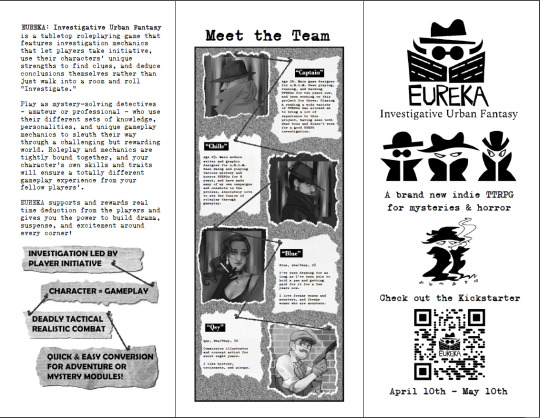
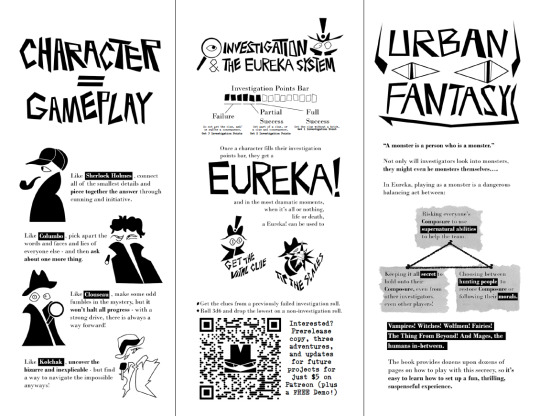
If you’re interested in a more updated and improved version of Eureka: Investigative Urban Fantasy than the free demo you got from our website, there’s plenty of ways to get one!
Subscribe to our Patreon where we frequently roll our new updates for the prerelease version!
Donate to our ko-fi and send us an email with proof that you did, and we’ll email you back with the full Eureka prerelease package with the most updated version at the time of responding! (The email address can be found if you scroll down to the bottom of our website.)
We also have merchanise.

#dnd#dnd5e#dnd 5e homebrew#dungeons and dragons#d&d#d&d 5e#dungeons and dragons 5e#dnd 5e#5e#homebrew#dungeons & dragons#critical role#crit role#dimension 20#actual play#matt mercer#wizards of the coast#wotc#hasbro#ttrpgs#ttrpg#ttrpg community#ttrpg tumblr#tabletop#roleplay#roleplaying#roleplaying games#tabletop roleplaying#tabletop role playing game#fantasy rpg
529 notes
·
View notes
Text

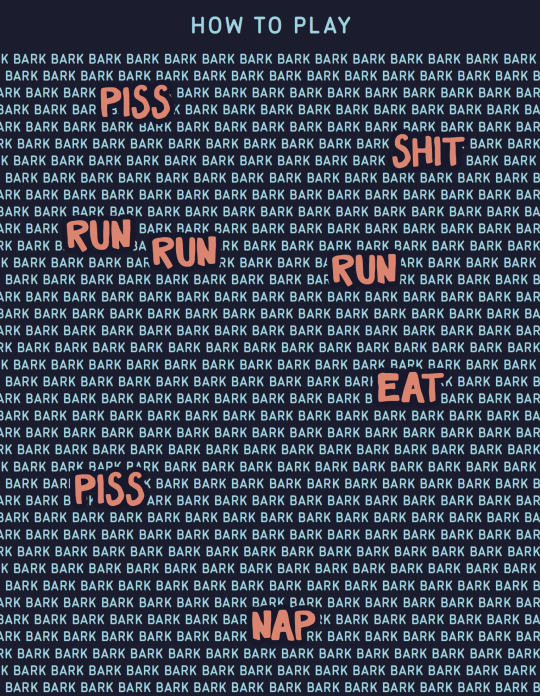
Dumb Small Dog
One page RPG jam.
A simple one-page RPG that helps you embody the role dumb small dogs have in our society. It may require skill and practice.
Built on the Essence system
#ttrpg community#small dogs#essence system#one page#ttrpgs#bark#spencer goldade#monkeyslunch#ttrpg design#game jam#indie games
2K notes
·
View notes
Text
Playing Rabbits in an RPG from 1976
(This continues our 2024 series, 10 Games From The First 10 Years. First published in the Indie RPG Newsletter)

It is genuinely surprising to me that in 1976, within two years of D&D coming out, someone published a game about being rabbits. It makes a little more sense when you realize that it was inspired by Watership Down and the designers were, I believe, zoologists or something similar. But having read it, the premise is the least interesting part of this game. It has so many fascinating little ideas.
Bunnies & Burrows is a game about rabbits … but these aren’t just rabbits, they fight, explore, gamble, study herbs, see the future, parley with beetles, find love, have children – and the list goes on. The end result are characters that ironically feel more human than you’d imagine.
As I play more games, I learn about games, sure, but I’m also learning a lot about myself. And a rule of thumb has slowly emerged: I want to play games that lead to interesting, surprising, unique things being said by the players. I’ve sometimes phrased it as “people want to say cool shit at the table”. I’m people.
Bunnies & Burrows starts with D&D as a jumping off point – there’s that old, familiar rolling 3d6 down the line to get your stats. But that’s more or less where the similarities end. You have rules for fighting but it’s not D&D combat – this game is often described as having “the first martial arts system” but what this means is that fighting is mostly weapon-less and involves declaring actions that flow into each other as patterns or c-c-combos. Basically, some actions set up other actions – you can’t Rip into another rabbit unless you already pulled off a Bite & Hold in the last turn. Some actions like Run aren’t possible if you’ve just done a Pin or a Rip in the previous turn and so on. I didn’t actually get to play out a fight but these rules got me grinning.
And the whole thing is like that. The study and application of herbs is meant to be a little puzzle where through trial-and-error and dice rolls, you slowly figure out what’s good for you and what isn’t. The languages and persuasion rules mean that certain characters can become envoys to other species. Because a language can mean the difference between things turning violent and a peaceful negotiation between rabbits and a mother scorpion that has accidentally wandered into their warren.
Don’t get me wrong. Most of these little pieces are eccentric and inelegant – always more convoluted than you’d like but still a major leap forward in playability because in the end, it’s a d100 roll under a target number. All the fiddliness – and there’s a lot of it – lies in the absolutely esoteric ways this game invents for calculating that target number. But I find it easy to forgive this in an old game, especially when the most interesting part of the game doesn’t lie in the mechanics but the negative space the rules seem to create.

The donut hole in the centre of this game – fruitful void? uncrowded centre? – is the question: What is rabbit society like? This is a setting question – or rather, a system of relation question – that is never asked but it must be answered. The mechanics have some opinions. For example, every player picks a profession when they make a character – Empath, Seer, Storyteller, Scout, and so on. Some of this comes from Watership Down, which can, of course, be your ready-made answer – it’s the unstated but obvious setting sourcebook for this game. But if you don’t go down that route, you’ve got a juicy problem: What do we value? What do we despise?
439 notes
·
View notes
Text
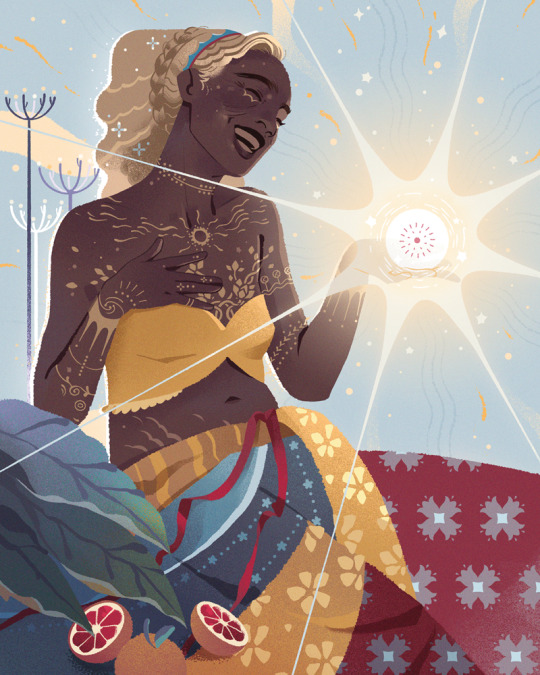
Abella - Goddess of Rebirth for @cantripcandles 🕯️
#cantripcandles#dnd art#dnd 5e art#dnd#deity art#artists on tumblr#illustrators on tumblr#ttrpg community#ttrpg#ttrpg art
2K notes
·
View notes